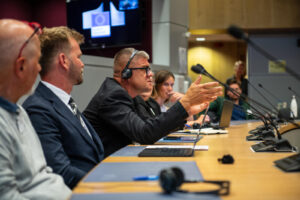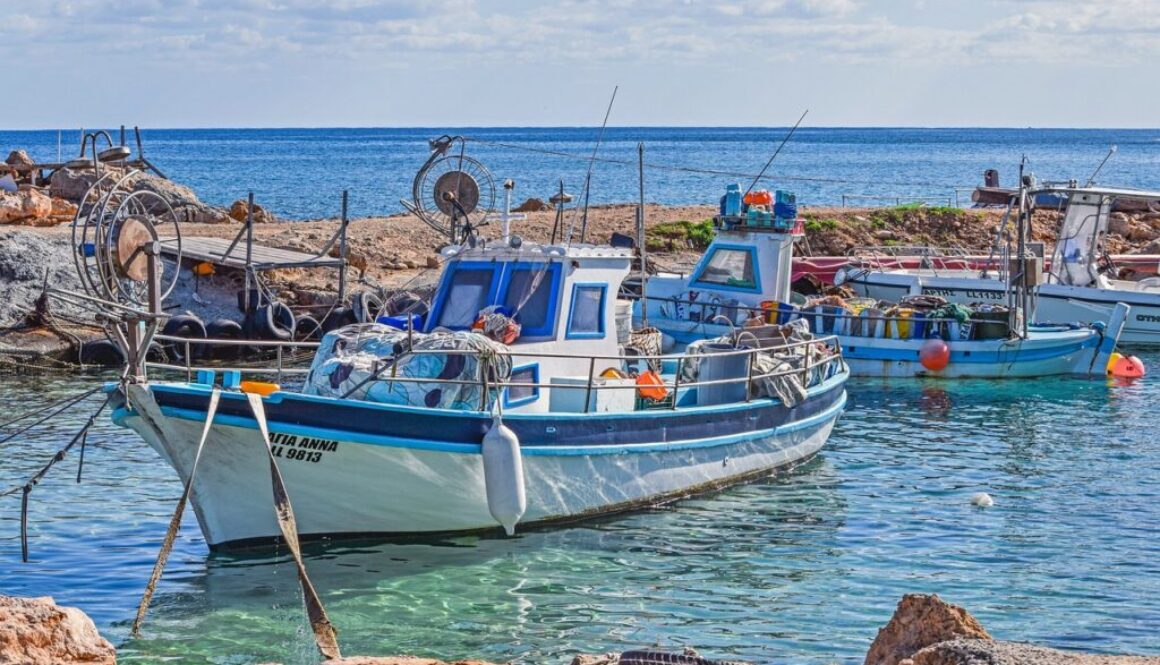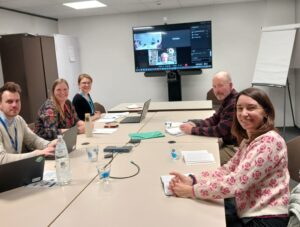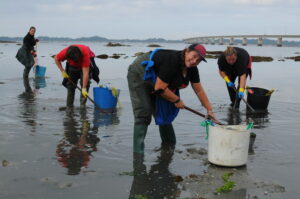Catch of the Day – June 2024
News about fair fisheries, healthy seas and vibrant fishing communities
Seaglow: LIFE joins newly-launched Horizon 2020 Project to pioneer decarbonisation in small-scale fisheries
The Seaglow Project (Sustainable Energy Applications for Green and Low-impact Operation of small-scale fishing boats in the Baltic and North Sea basins) was launched in Aalborg, Denmark this month. It combines the expertise and efforts of 16 partners from the European Union, Norway, and Thailand. Over the next period, LIFE will work with these partners to field test decarbonisation solutions for small-scale fishing to shift towards renewable and low-carbon energy sources. It aims to showcase five different technological applications that can reduce fossil fuel consumption and greenhouse gas emissions on small-scale fishing boats in the North and Baltic Sea basins, Seaglow will also evaluate their impact and assess their potential. LIFE’s Member from Denmark, the FSK, is also part of the consortium, and LIFE is enthusiastic about collaborating with them on this initiative over the next four years. LIFE is currently designing the project website, and will lead the work package on disseminating lessons learned.
Digital transformation in small-scale fisheries: LIFE and IIMRO join the Fish-X project
The Fish-X Project, funded by the Horizon Europe Programme, aims to help small-scale fisheries overcome the challenges of transitioning to electronic monitoring (EMS) and digital catch reporting and promoting transparency and traceability. This will include creating digital tools such as a database for institutions to access information on documented fish catches and vessel tracking, a platform for analyzing fishing activity patterns, and a traceability application. The project will receive support from LIFE and members from Ireland IIMRO, whose inputs will include contributing to developing a roadmap for digitalization of the SSF sector, as well as testing the new tools on small-scale fishing vessels.
Securing fisheries place at the centre of EU Food Policies via the Aquaculture and Fisheries Taskforce of the EU Food Policy Coalition
To promote the advancement of sustainable food systems and the incorporation of low-impact, high-value fisheries in European food policies, LIFE has become a member of the EU Food Policy Coalition’s Aquaculture and Fisheries Taskforce. This taskforce is a working group of stakeholders whose shared objective is to promote a shift towards sustainable food systems. LIFE will represent the viewpoint of small-scale fishers based on the agenda of member associations, and will establish new connections with grassroots social movements, farmers’ organizations, fishers’ organizations, trade unions, think tanks, and scientific and research groups. This will greatly strengthen our calls for a differentiated approach to small scale and large scale fisheries, and for a system which allows consumers to differentiate between the products originating from these different food production systems.
Tackling invasive species in the Baltic: the Round Goby project
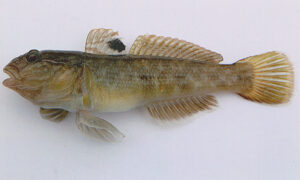
Overfishing, pollution and climate change are affecting the availability of commercial fish stocks. These impacts are exacerbated in many areas due to the introduction of invasive, non-native species. A project under the Interreg program is addressing this issue by focusing on the Round Goby in the Baltic Sea. The Round Goby is a small fish originating from South East Europe, from the Black Sea and adjoining waterbodies. It is a demersal species that feeds aggressively on small aquatic organisms – including eggs and larval stages of commercial species. It can also be a pest by blocking fishing gears. It is potentially highly productive, capable of spawning multiple times in a year. This new project builds on the work of an earlier project in which LIFE participated. Phase 2 was launched earlier this year, and earlier this month LIFE staff met with project partners to coordinate efforts on managing the Round Goby population. Meanwhile, LIFE members from Sweden, Denmark, Poland and Latvia have been engaged in devising selective fishing gears that avoid eel capture. The project will develop fishing methods and reporting systems, and will explore the market potential for value added products. LIFE’s main role will involve coordinating with fishers using adapted gears, monitoring catches, and working with partners on fisheries management and marketing arrangements.
Wind farms: ensuring inclusive Maritime Spatial Planning to avoid displacement opf small-scale fisheries
Spatial squeezing by the Blue Economy is a phenomenon of increasing concern to fishers, small and large. Nowhere is this more so than in the race to develop off-shore renewables to meet Green Deal targets. Particularly worrisome is their encroachment onto fishing grounds, and/or their placement near to fishing grounds and crucial fish habitats (spawning and nursery areas). The impact of developing off-shore renewables in the form of energy parks (wind turbines, tidal and wave power) on fish stocks and ecosystems is still unclear, and in LIFE’s view there are insufficient independent ex-ante impact assessments.
LIFE brought these and other questions and concerns to an informal exchange of views with DG Mare’s team dealing with Blue Economy Sectors, Aquaculture, and Maritime Spatial Planning. Amongst the key takeaways from the meeting were that several Member States are revising their MSP plans and related energy legislation, and that ICES has been requested to make a socio-economic impact assessment of off-shore renewables on fisheries, and to report by Spring 2025. There is also the option for LIFE to engage in MSP consultations by participating in the existing Experts Group. This would imply seeking resources to build extra capacity in LIFE, or taking staff away from other activities. It comes down to deciding what should be LIFE’s key priorities, and where MSP and off-shore renewables fit into these.
Busy, Busy, Busy: Baltic Sea Emergency, BSAC and Board of Directors meeting. June ends with a bang for LIFE in Brussels
To mark the 5th anniversary of the Baltic cod fishery closure, an emergency measure imposed by the European Commission, LIFE organised a key event in Brussels. This well-attended gathering brought together decision-makers, officials from the European Commission and Member States, politicians, scientists, sector stakeholders, and LIFE Members from Sweden, Denmark, and Poland. The primary focus of the event was to address the concerning decline of Baltic cod stocks and other fisheries, and to discuss the inadequacies of current fisheries management systems. The event featured in-depth presentations with discussions oriented to identifying solutions and remedial actions to halt the downward spiral of the Baltic cod populations. For more comprehensive details about the event, including key presentations and proposed solutions, you can visit LIFE’s website or refer to an article published by Mundus Maris.
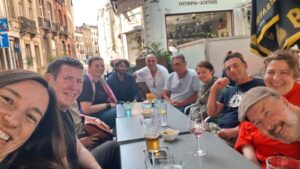
Over the following days, LIFE staff and members from the Baltic region participated in the Baltic Sea Advisory Council (BSAC) Executive Committee meeting. A key document presented was the Commission Communication to the European Parliament and the Council titled “Towards more sustainable fishing in the EU: state of play and orientations for 2025”. LIFE’s Baltic delegation then joined LIFE’s Board of Directors meeting, conducted in a hybrid format. As well as routine items on financial reporting, membership fees, news from Members, the Advisory Councils, etc., there were also key discussions on the issue of wind farms and on differentiating small and large-scale fisheries from management and marketing perspectives.
Coming up
July and August are holiday months, with Brussels grinding to a halt. September will see the resumption of intense activities within the EU institutions, notably in the newly elected European Parliament and with the new mandates of 27 newly appointed Commissioners. In early July we should learn how the new MEPs will work on the 10th legislative agenda in different committees, including on fisheries, food, rural development and the marine environment. The first (constitutive) plenary of the new Parliament will sit in Strasbourg from 16 to 19 July, where MEPs will vote on a new President, 14 Vice-Presidents and five Quaestors.
12/6/2024 – 06/9/2024: Ex-post evaluation of the 2014 – 2020 European, Maritime, Fisheries and Aquaculture Fund. This aims to identify how the Fund achieved the objectives for each EU priority; how well it responded to crises and market disruptions; and the factors that contributed to the success or failure of its investments.
12/6/2024 – 06/9/2024: Mid-term evaluation of the EU Maritime, Fisheries and Aquaculture Fund (EMFAF) 2021-2027 and call for evidence. The Commission would like to hear your views to assess the state of implementation of the EMFAF for the 2021-2027 programming period. https://ec.europa.eu/info/law/better-regulation/have-your-say/initiatives/14119-EU-Maritime-Fisheries-and-Aquaculture-Fund-EMFAF-2021-2027-midterm-evaluation_en
20/6/2024 – 06/9/2024: Have your say in the evaluation of the Common Fisheries Policy – Call for evidence. This will be followed by an evaluation study to be carried out by an external contractor starting in autumn, along with a 12 week public consultation https://ec.europa.eu/info/law/better-regulation/have-your-say/initiatives/14203-Common-fisheries-policy-evaluation_en
4-8/9/2024: LIFE member Snowchange in collaboration with the Endangered Landscapes and Seascapes Programme, and other supporters, will hold the fourth Festival of Northern Fishing Traditions in North Karelia, Finland.
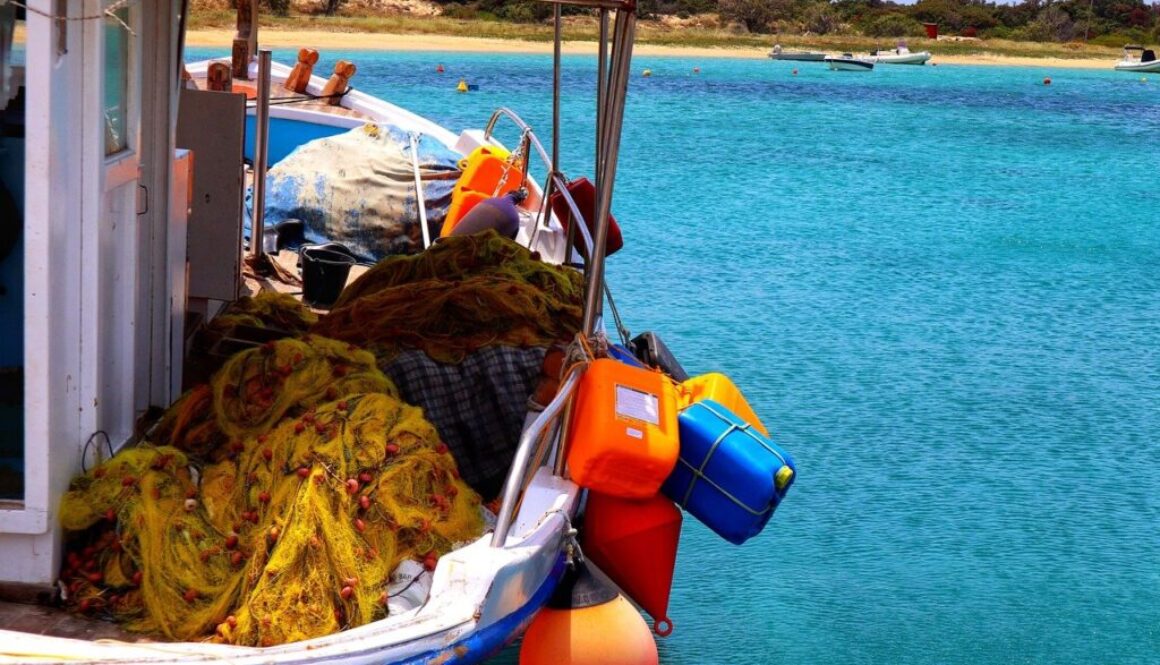
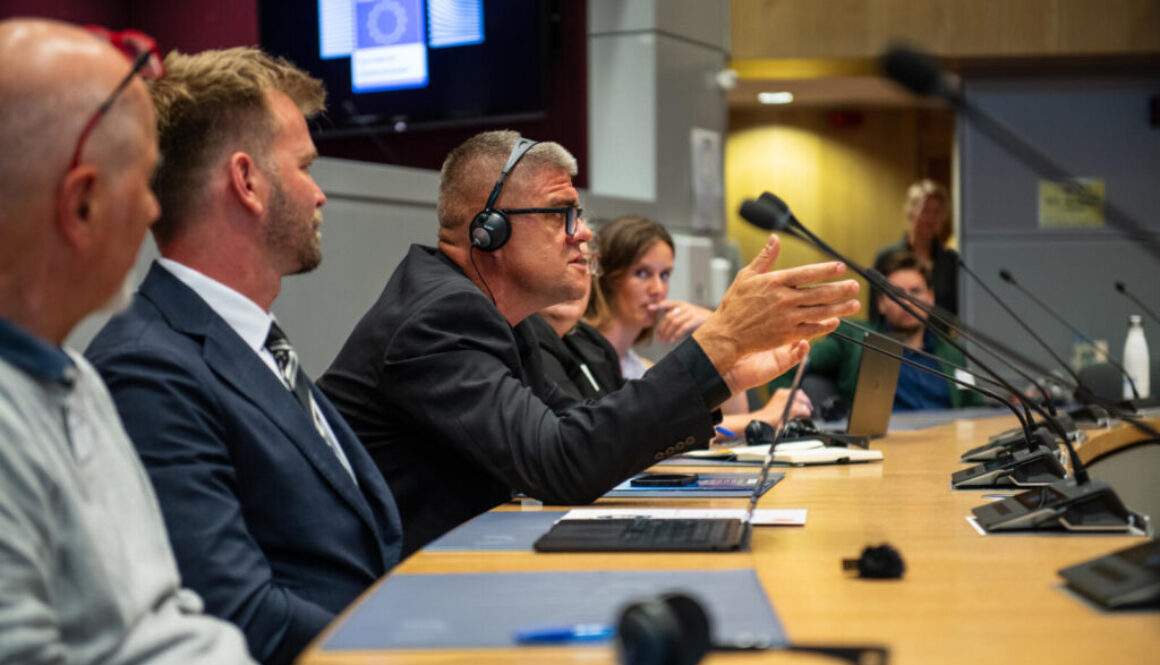
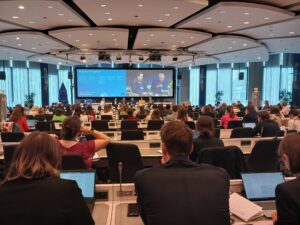 Climate change is impacting the Arctic more dramatically than other regions; it is warming 3-4 times faster than the planet as a whole. This is affecting the livelihoods and food systems of local communities and indigenous people in irreversible ways. Meanwhile, climate change is opening up opportunities for others, attracting external actors into the region and increasing competition for space and resources.
Climate change is impacting the Arctic more dramatically than other regions; it is warming 3-4 times faster than the planet as a whole. This is affecting the livelihoods and food systems of local communities and indigenous people in irreversible ways. Meanwhile, climate change is opening up opportunities for others, attracting external actors into the region and increasing competition for space and resources. 